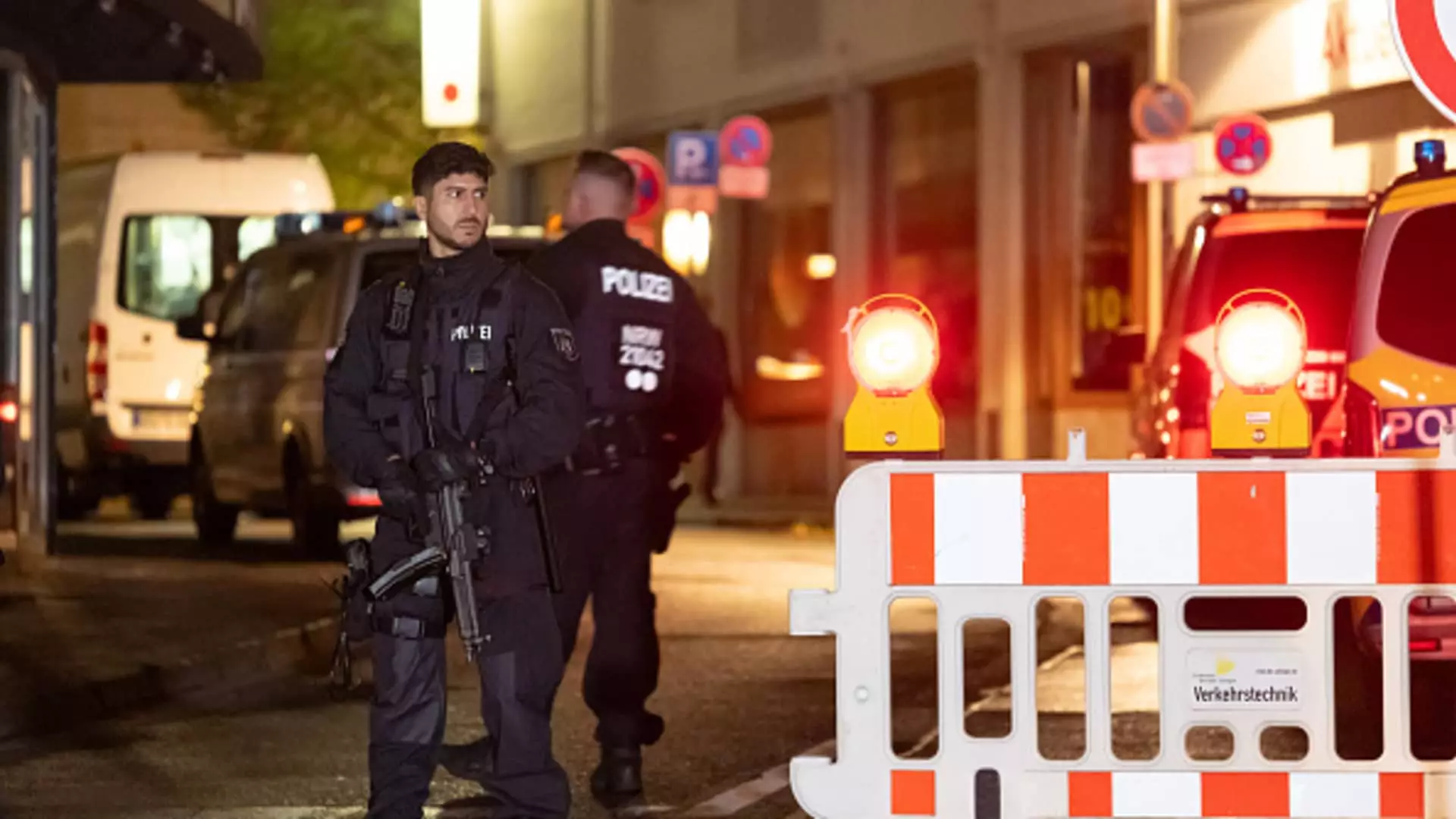The recent knife attack in Solingen, Germany, is a chilling reminder of the vulnerabilities societies face in the age of global terror. This tragic event unfolded during a local festival, where a 29-year-old man lost his life, and several others were left grievously wounded. The Islamic State group’s claim of responsibility adds a layer of complexity to this incident, highlighting not just a local tragedy but a global issue of ideological violence that has permeated many communities, even those that previously felt insulated from such acts.
In this situation, the chaos was palpable as law enforcement scrambled to manage the aftermath. The identity of the attacker remains unclear, although a 15-year-old suspect has been detained for questioning. This aspect alone raises a multitude of questions regarding radicalization and how young individuals become involved in heinous activities. Furthermore, it casts a shadow on the effectiveness of counter-radicalization efforts that aim to protect society from such violent ideologies.
The Islamic State’s declaration that the attacker acted “in revenge for Muslims in Palestine and everywhere” illustrates the alarming way extremist ideologies can fuel violence in various parts of the world. Such statements aim to create a narrative of martyrdom and support for a global jihad, pushing vulnerable individuals towards violence as a means of expression. The proclamation lacks concrete evidence supporting any direct relationship between the perpetrator and the terrorist organization; however, it showcases how claims can serve to legitimize acts of terror in the eyes of supporters.
Government officials, including the premier of North Rhine-Westphalia, characterized this act as a terrorist attack, indicative of a larger trend wherein authorities are becoming increasingly sensitive to acts of violence that appear ideologically motivated. The attempt to frame the incident as an act of terror raises concerns about community relations, public safety, and the balance between security and freedoms in a democratic society.
The response from local authorities and the community is both telling and poignant. As police cordoned off the festival site, passersby mourned lost lives with candles and flowers, showcasing a communal resilience amid this tragedy. The emotional toll on the community is significant, laying bare the fears that can linger after such incidents. The Mayor of Solingen articulated the collective shock and grief, emphasizing the human cost of terrorism that extends beyond immediate victims to the broader populace.
The local festival, celebrating the city’s 650-year history, being cut short reflects the ripple effects of violence and loss on cultural events that serve as communal touchstones. Ironically, Solingen, known for its knife manufacturing, now carries a dual representation: a center of craftsmanship and a site of tragedy that highlights the dichotomy of industry and violence.
In the aftermath of the attack, political discourse has taken a sharp turn. Right-wing politicians see opportunities to advance their agendas, often leveraging fear to gain traction. A prominent figure from the Alternative for Germany (AfD) party exploited this incident for political gains, positioning it as a critique of multiculturalism. This highlights a disturbing trend whereby acts of terror might be appropriated to incite division rather than promote unity and healing.
Such reactions also point to changing social landscapes in Germany, where fears surrounding immigration and multiculturalism are simmering. As politicians consider stiffer regulations on public safety, including potential restrictions on carrying knives, it raises the question: how can societies balance the need for safety while maintaining the freedoms that define democratic existence?
The Solingen knife attack serves as a harrowing reminder of the fragility of peace in a diverse society. It compels us to confront the realities of global terror feeds into local narratives, creating a complex web of fear, grief, and political maneuverings. As the investigation continues, and the region grapples with the repercussions of this violence, the imperatives of fostering community resilience, enhancing security measures, and addressing the root causes of radicalization become more pressing than ever. The lives lost should push society not just to react, but to reflect deeply on this challenging landscape of human existence.


Leave a Reply